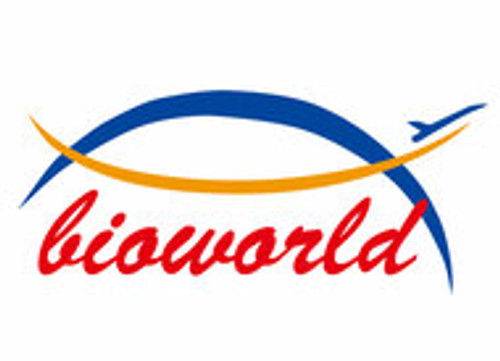Product Description
c-Fos (phospho-T232) polyclonal antibody is available at gentaur for next week delivery
Background: The Fos family of nuclear oncogenes includes c-Fos, FosB, Fos-related antigen 1 (FRA1), and Fos-related antigen 2 (FRA2) (1). While most Fos proteins exist as a single isoform, the FosB protein exists as two isoforms: full-length FosB and a shorter form, FosB2 (Delta FosB), that lacks the carboxy-terminal 101 amino acids (1-3). The expression of Fos proteins is rapidly and transiently induced by a variety of extracellular stimuli including growth factors, cytokines, neurotransmitters, polypeptide hormones, and stress. Fos proteins dimerize with Jun proteins (c-Jun, JunB, and JunD) to form Activator Protein-1 (AP-1), a transcription factor that binds to TRE/AP-1 elements and activates transcription. Fos and Jun proteins contain the leucine-zipper motif that mediates dimerization and an adjacent basic domain that binds to DNA. The various Fos/Jun heterodimers differ in their ability to transactivate AP-1 dependent genes. In addition to increased expression, phosphorylation of Fos proteins by Erk kinases in response to extracellular stimuli may further increase transcriptional activity (4-6). Phosphorylation of c-Fos at Ser32 and Thr232 by Erk5 increases protein stability and nuclear localization (5). Phosphorylation of FRA1 at Ser252 and Ser265 by Erk1/2 increases protein stability and leads to overexpression of FRA1 in cancer cells (6). Following growth factor stimulation, expression of FosB and c-Fos in quiescent fibroblasts is immediate, but very short-lived, with protein levels dissipating after several hours (7). FRA1 and FRA2 expression persists longer, and appreciable levels can be detected in asynchronously growing cells (8). Deregulated expression of c-Fos, FosB, or FRA2 can result in neoplastic cellular transformation; however, Delta FosB lacks the ability to transform cells (2,3).
Applications: WB IF
Purification&Purity: The antibody was affinity-purified from rabbit antiserum by affinity-chromatography using epitope-specific immunogen and the purity is > 95% (by SDS-PAGE).
Storage&Stability: Store at 4°C short term. Aliquot and store at -20°C long term. Avoid freeze-thaw cycles.
Specificity: c-Fos (phospho-T232) polyclonal antibody detects endogenous levels of c-Fos protein only when phosphorylated at Thr232.
W4BiowMW: ~ 62 kDa
Reactivity: Human,Mouse,Rat
Note: For research use only, not for use in diagnostic procedure.
Immunogen:
A phospho specific peptide corresponding to residues surrounding T232 of human FOS.Alternative Name:
p55; AP-1; C-FOS;Western blot analysis: Immunofluorescence analysis of MCF7 cell using Phospho-FOS-T232 antibody. Blue: DAPI for nuclear staining.
Immunohistochemistry: Western blot analysis of extracts of HepG2 cells, using Phospho-c-Fos-T232 antibody.
Immunofluorescence analysis:
Host: Rabbit
Swiss-Prot: P01100
"








